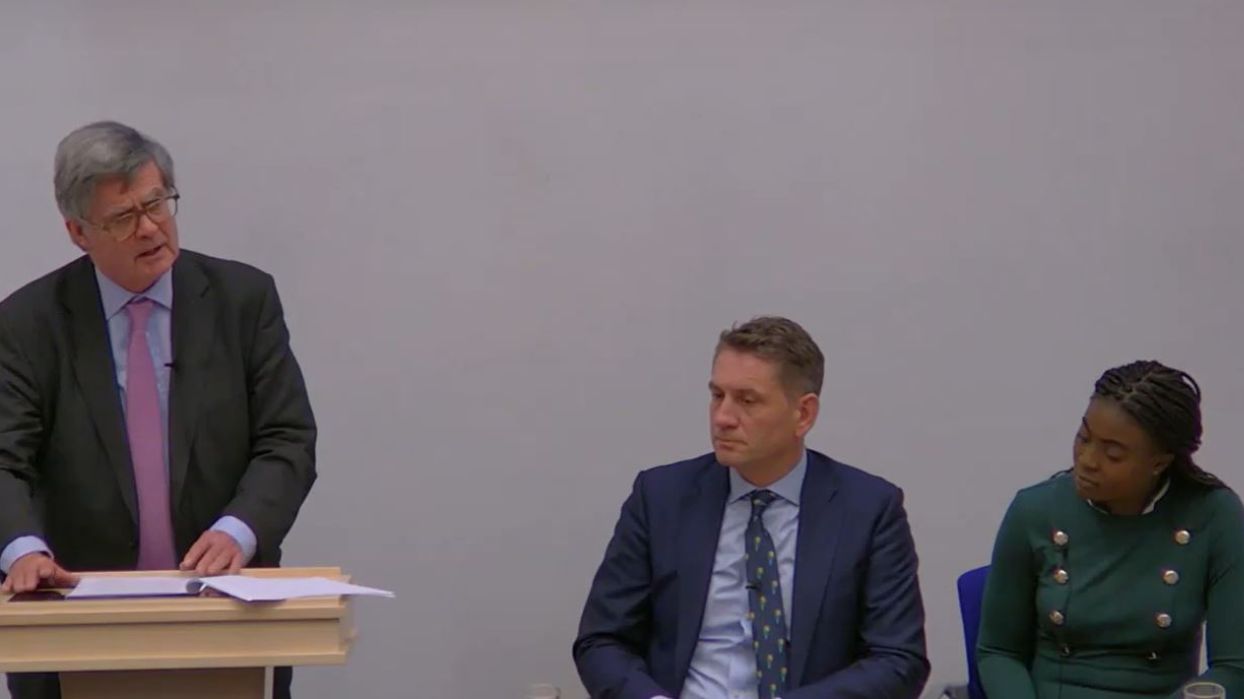Commercial Litigation partner Fiona Gillett spoke at the UK/US Cross-Border Litigation Summit in July 2023, addressing a session titled ‘Litigation in a Hybrid World’ along with Eric Nitz of hosts MoloLamken and moderator Priya Grigoriadis of Stephenson Harwood.
In this article Fiona explains how the conduct of litigation has changed in the English courts as a result of hybrid working.
How frequently are courts now taking evidence or conducting hearings remotely?
On the whole, the English courts have returned to in-person hearings. In the Commercial Court and Chancery Division, only hearings of half a day or less are remote by default (though this can be overridden by the judge). Trials and witness and expert evidence are no longer taking place remotely unless requested by the parties and agreed by the judge hearing the matter. Indeed, it is a matter of the court’s own discretion, applying its own case management powers, to direct (on the application of a party or of its own volition) that a hearing take place or that evidence be given remotely.
In practice this means parties need to consider the option of a remote or hybrid hearing sufficiently in advance of the pre-trial review hearing, giving thought to the use of technology as well as any arrangements for witnesses to give evidence remotely.
There are a number of factors which can favour remote evidence taking. The Commercial Court guide provides that remote witness evidence should always be “at least considered” where a witness would have to travel a substantial distance and their evidence is expected to last no more than half a day.
The Commercial Court Guide and Chancery Guide now include detailed appendices incorporating the disparate sources of knowledge developed during the pandemic into a set of clear guidance to follow if a fully remote or hybrid hearing is requested.
What difficulties do you encounter when questioning a witness remotely or over video?
The courts’ view in England and Wales is that all should parties should view evidence given in the same way, so either all remotely or all in person. In a hybrid hearing, if the witness is to give evidence in person then all parties and the judge should be in court; a party and its representatives should not be remote if a witness is giving evidence in person and the judge and the other parties are in court too.
A point to bear in mind it that we should not presume that all foreign governments are willing to allow their nationals or others within their jurisdiction to be examined before a court in England or Wales by means of videoconferencing. If there is any doubt about this, enquiries should be directed to the Foreign and Commonwealth Office (Legalisation Office) with a view to ensuring that the country from which the evidence is to be taken raises no objection at diplomatic level. The party who is directed to be responsible for arranging the videoconference is required to make all necessary inquiries well in advance and must be able to inform the court what those inquiries were and of their outcome.
More generally, there is of course a risk with virtual evidence taking given the lack (or perceived lack) of the formality engendered by a courtroom setting. This should be borne in mind depending on the witness and the nature of their evidence, when deciding whether to seek permission for evidence to be given by videoconference.
Finally, if a witness is to give evidence remotely by an interpreter, this can easily give rise to difficulties unless the parties have considered whether the interpreter should be at the local site or the remote site, and whether the translation is to be simultaneous or consecutive.
How might remote proceedings might present an advantage?
London is known as an international centre for dispute resolution. Many of the cases being heard in the Commercial Court involve foreign parties and witness and expert evidence heard from persons who are not resident in the jurisdiction.
A remote hearing can mean more stakeholders can participate in the hearing: for corporate clients for example, more representatives with an interest in the dispute will be able to “attend” the hearing than if they are all required to travel to England. But remember that for clients to view the hearing remotely from aboard, permission must be obtained from the judge.
Some witnesses may find a courtroom setting intimidating. A less formal setting for giving evidence remotely might be favourable if they are less anxious, more confident and are not having to be physically face to face with the opponent.
When it comes to taking evidence, remote proceedings often frame the speaker’s face prominently in the active video frame, so it is sometimes easier to pick up on facial cues when conducting questioning remotely, or a judge’s facial cues during an argument. If you are perceptive, it can be easier to gauge the witness’s or the judge’s reaction to what you’re saying and adjust as necessary.
We should also consider the cost and environmental elements: remote proceedings can often be more cost effective simply by reason of them not requiring travel (whether local, regional or even international).
How have courts ensured open proceedings and handled attendance by the press or public during remote hearings?
To ensure that the requirement for justice to be administered in public was satisfied at the start of the Covid-19 pandemic, various means were deployed including live-streaming a video recording and/or ensuring daily transcripts of the hearing were made publicly available at the conclusion of each day. Indeed, the purpose of a public trial is “to enable public scrutiny” and “to enable the public to understand how the justice system works”, which does not necessarily require that the general public be able to see the trial in real-time.
With the Courts having rapidly got to grips with managing the participation of observers at remote hearings, the public and any press are required to email the listing office to request access to the video platform if the hearing is listed as a remote or hybrid hearing. From June 2022, courts and tribunals have new and expanded powers, replacing the temporary provisions in the now repealed Coronavirus Act 2020. These powers allow reporters and other members of the public to observe hearings remotely. Courts and tribunals are now able to give directions to allow remote observation of in-person and hybrid hearings as well as fully remote hearings.
However, if it is necessary to derogate from open justice, for instance by restricting public access to aspects of the evidence or restricting reporting what takes place “in court”, the court can impose equivalent restrictions on remote observers as it would at an in person hearing.
How can security and privacy in remote proceedings be ensured?
All remote observers must be warned that they must not record or transmit any images or audio of the proceedings and may be punished if they do. The new s.85B of the Courts Act 2003 makes this a summary offence as well as a contempt of court, with a maximum sentence of two years’ imprisonment. This provision also covers taking a photograph or a screenshot of a remote hearing.
In all cases, the parties must inform the court in advance of whom they wish to attend the hearing as participants (as opposed to observers). Judges have been critical of lawyers who have shared a remote hearing link with their clients, who have in turn shared it more widely. Lawyers are therefore more aware than ever of the need to ensure their clients are given clear instructions on the need to identify all remote viewers to the Court, and on the prohibition on sharing the link with anyone else without the court’s permission.
As noted above, anyone wishing to access a remote hearing link from abroad (as a participant or observer) must have permission of the court in advance, but it is also important to ensure that their attendance is not in breach of any local laws and that any permissions required from the local court or other authority in the foreign jurisdiction have been obtained.
How does the use of remote proceedings differ in arbitration and mediation as compared to formal court proceedings?
Surveys suggest remote mediations, while convenient and easier to arrange, can be less effective at reaching an outcome. This is possibly because the parties having to travel and congregate in an office focuses their minds on the end goal.
For arbitrations, there is more scope for remote or hybrid hearings as the parties have a greater say over what is a private process. As there is also often an international element to the parties, legal representatives and the composition of the tribunal, remote hearings undoubtedly can lead to cost efficiencies on travel and accommodation as well as a lower carbon footprint.
What does the future look like for hybrid proceedings?
In my view, hybrid and remote hearings are here to stay. Huge progress was made in just the first year of the pandemic, and as the functionality and importantly the accessibility of technology continues to improve it seems likely that there may be a return to more remote court hearings. This is particularly likely for shorter, less factually complex trials. Hybrid hearings are also likely to continue to become more common, which would allow for example the taking of evidence in person, but submissions taking place remotely.
You can find further information regarding our expertise, experience and team on our Commercial Litigation page.
If you require assistance from our team, please contact us or alternatively request a call back from one of our lawyers by submitting this form.
Subscribe – In order to receive our news straight to your inbox, subscribe here. Our newsletters are sent no more than once a month.






